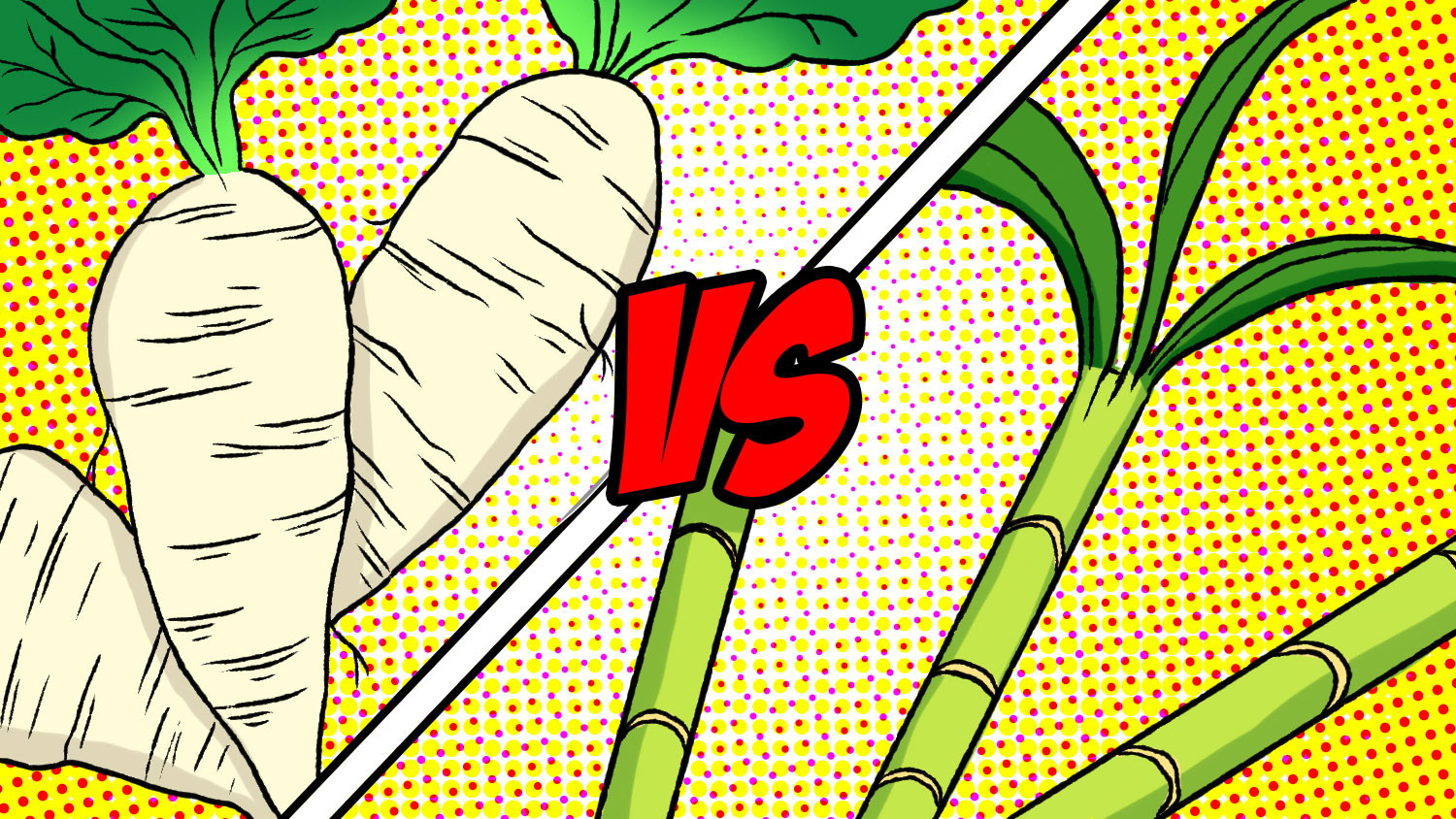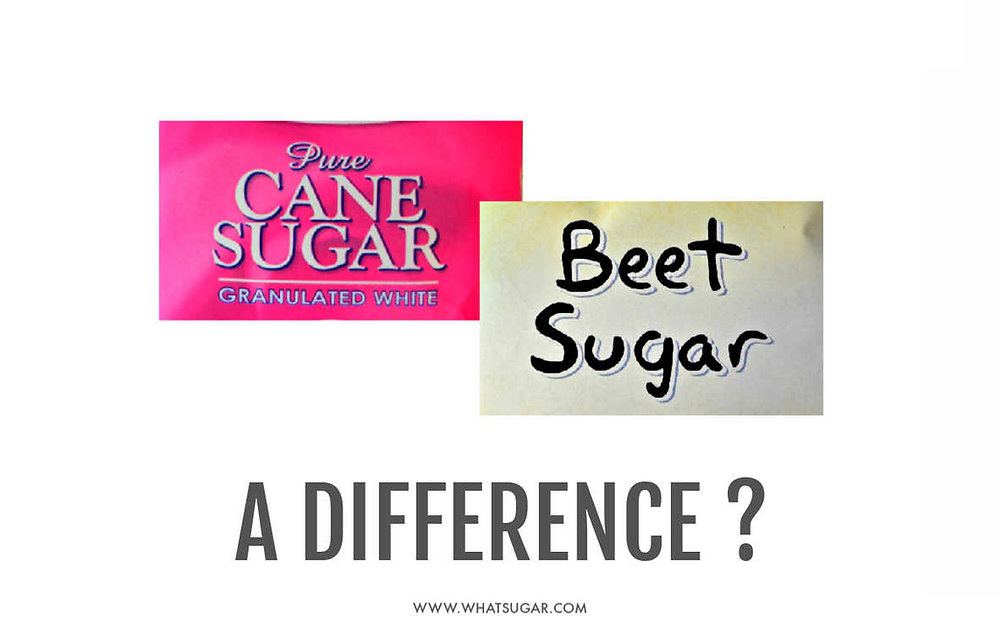The Terrific Discussion: Beet Sugar Vs Walking Cane and Their Impact on Wellness
The recurring dispute surrounding beetroot sugar and walking stick sugar raises essential inquiries concerning their corresponding wellness effects and broader ramifications for customer options. While both sugar share a similar chemical make-up, their beginnings and processing approaches might affect not just nourishment yet also ecological sustainability. As health-conscious individuals weigh the advantages of each choice, the implications of pesticide exposure and farming techniques come right into emphasis. This discussion invites us to consider not just the sweetness we pick, yet the far-ranging impacts of those choices on our health and the earth. What might this indicate for future consumption patterns?
Overview of Sugar Sources
Sugar, an extensively taken in sweetener, largely originates from two main sources: sugar beets and sugar walking cane. Sugar walking stick flourishes in tropical and subtropical environments, with major producers consisting of Brazil, India, and China.
On the other hand, sugar beetroots are primarily expanded in pleasant regions, with substantial production in nations such as the United States, France, and Germany. The beetroots are harvested from the ground, cut, and based on a procedure that converts the removed juice right into granulated sugar. While both sugar sources inevitably produce sucrose, their agricultural practices, processing methods, and geographical circulations differ noticeably.
These distinctions can affect not only the environmental effect of sugar manufacturing yet likewise the economic facets of sugar rates and trade. Understanding the origins of these sugar is crucial for consumers and policymakers alike, as it lays the foundation for educated conversations regarding their health and wellness effects and sustainability.
Nutritional Contrast
When checking out the dietary accounts of beetroot sugar and walking stick sugar, both resources share a similar make-up as they primarily include sucrose. Sucrose is a disaccharide, made up of glucose and fructose, and is accountable for the sweetness related to both sugars. The refining processes for both beet and cane sugar return items that are primarily pure sucrose, with marginal traces of vitamins, minerals, or various other nutrients.
In regards to calorie content, both beetroot and cane sugars offer roughly 4 calories per gram. Neither sort of sugar provides significant dietary advantages past power stipulation, as they do not have essential vitamins or minerals. The visibility of trace elements, such as calcium, potassium, and magnesium, can differ a little in between the two, primarily due to the agricultural techniques and dirt problems in which they are expanded.
Additionally, the glycemic index values of beetroot sugar and walking stick sugar are equivalent, indicating similar impacts on blood sugar levels. Overall, from a nutritional viewpoint, beetroot and walking stick sugars are functionally equal, contributing largely to calorie consumption without using significant wellness benefits over each other.
Wellness Effects
The health and wellness effects of consuming beet sugar and walking stick sugar warrant cautious consideration, specifically provided the rising frequency of sugar-related health and wellness concerns. Both kinds of sugar add comparable caloric worths and can cause increased threats of obesity, type 2 diabetes, and cardio illness when eaten over. The body metabolizes both sugars into glucose, which can trigger spikes in blood sugar degrees, causing insulin resistance with time.
While there is recurring discussion regarding the glycemic index of these sugars, research studies suggest that both can negatively impact metabolic wellness if eaten in large quantities. beet sugar vs cane. In addition, the possible existence of contaminants in beet sugar, such as chemicals from standard farming methods, raises further wellness problems. On the other hand, walking cane sugar, particularly when minimally processed, might offer a somewhat a lot more beneficial profile as a result of its all-natural state
Moreover, the consumption of sugarcoated, no matter the resource, is connected to damaging health results, including oral more information concerns and fatty liver illness. As a result, moderation is crucial, and individuals must bear in mind their overall sugar intake from all sources, inevitably prioritizing whole foods over included sugars for optimal wellness outcomes.
Environmental Influence
Comprehending the health ramifications of beetroot and walking cane sugar likewise causes an exam of their environmental effect, which can significantly influence agricultural sustainability and ecological equilibrium. Both sugar sources have unique ecological impacts, shaped by their farming methods and geographical needs.

In comparison, beetroot sugar is normally expanded in warm climates and usually includes varied plant rotations. This practice can boost soil wellness and reduce dependence on chemical inputs. Intensive beet farming can additionally lead to nutrient deficiency and pest pressures if not taken care of sustainably.
Both sugar kinds existing challenges and chances for click here for more info environmental stewardship. Promoting sustainable agricultural techniques and responsible sourcing can mitigate their effects, making certain that sugar production straightens with environmental preservation and long-lasting food safety and security.
Customer Preferences
In the middle of expanding awareness of health and environmental issues, customer preferences for sugar types are progressively affected by assumptions of health and wellness benefits, sustainability, and ethical sourcing. Beetroot sugar and walking cane sugar each existing one-of-a-kind qualities that attract different customer demographics.
Health-conscious customers often inspect the nutritional profiles of these sugars, seeking options viewed as much less processed or even more natural. Cane sugar, frequently considered the traditional sugar, is sometimes preferred for its perceived purity and simpleness. On the other hand, beetroot sugar, which is regularly originated from genetically modified plants, faces apprehension amongst those worried about GMOs.
Sustainability is an additional significant factor influencing customer options. As recognition of farming techniques grows, many customers go with products that straighten with eco-friendly farming methods. Walking stick sugar production, specifically when sourced from lasting ranches, can attract eco-conscious customers.
Honest sourcing plays an essential function as well, with customers increasingly favoring items that support fair labor practices. Certifications such as Fair Profession can enhance the attractiveness of walking cane sugar on the market. Eventually, customer choices are shaped by a complex interaction of health and wellness, ecological, and ethical considerations, driving need for both beet and cane sugars in diverse markets.
Verdict
In verdict, the discussion between beet sugar and cane sugar encompasses numerous factors, including nutritional profiles, health and wellness implications, and environmental consequences. beet sugar vs cane. While both sugars mainly are composed of sucrose and exhibit comparable calorie material, worries concerning chemical usage in beet sugar and the environmental impact of walking stick sugar monoculture warrant careful factor to consider. As customers significantly focus on sustainability and health, educated selections relating to sugar consumption come to be essential in advertising total wellness and environmental stewardship

Comments on “Why Choose Beet Sugar vs Cane for Your Next Sweetening Project?”